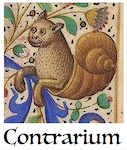Sweden. Day 15. Art for Art's Sake.
Today the day was mostly consumed assisting with the filming of a performance by other artists who are residing or visiting up here. I do not have much idea of what it was about, other that it involved ties being tied around a person.
It is interesting that most of the artists currently residing or visiting the studios these days are visual artists in their 50s, many of them women. Except for an American artist in her early thirties, I am the youngest one for now. Which is something new for me lately.
I don’t know if I would consider myself an artist, and I do not pretend to be an expert in contemporary art — especially not in performance art.
On the one hand, I am a filmmaker and writer, perhaps not a very good one, but it is what I try to do; and so I am more attracted to conventional narratives and techniques, to classic fiction and figurative or art, and less to experimental stuff. If “anything can be art”, then, nothing is art? I don’t know, but I am not so much in the camp of the Marcel Duchamp theory of the artwork as “whatever the artist decides”.
On the other hand, I do admire the courage of artists who like to experiment and try different things all the time; and in fact, many of the artists here are doing quite interesting if unusual things, and sometimes I wish I could have the same free spirit.
Ösa, the Swedish artist who is behind the tie performance, is also a singer and a painter. There is another artist from New York, Zoey, who collects moss and tree branches and uses them to create new objects; Håkan, whom I mentioned before, is a Swedish documentary filmmaker who has really interesting footage about all kinds of subjects; Alexandra is a painter and performer from Chicago who moved to Stockholm; and then there are the newest visitors Anna, Sergio and Ulrika who work with… Actually, I don’t know yet, but I am sure it’s something interesting. And all of them are really nice and kind people, too.
Artists tend to have a bad reputation, especially these days. Whatever they do is considered “non-essential”, and the first thing to be cut when any type of restrictions are announced, which unfortunately happens very often these days. Many people seem to consider artists “bums”, which I feel is an extremely unfair charge. Just today’s five- minute performance took the whole day to prepare; the production of a single theatre play can take months, and the same is true of movies. Art takes a lot of work.
Besides, some people seem to have this absurd idea that artists live a worry-free life, receiving lots of benefits from the government, but honestly, I’ve been all around the world and I haven’t seen any country where this is true. Whatever governments spend on art is really very little compared to most other sectors, it really is the last thing they invest on. Most artists receive little to no funding, and tend to have difficult lives balancing their “real job”, their family or personal life and their art. So artists will always have my sympathy.
About my own project, which is a re-imagination of the work of Scandinavian playwrights Strindberg and Ibsen… It’s coming along, albeit slowly, very slowly. I do not know what will come out of it yet, perhaps nothing. Who knows? Another thing about art is that you don’t always know what will result from all the work that you put into it, or even if it will be any good; and sometimes it doesn’t turn out as expected and can even feel like a wasteful use of time. But sometimes you’re pleasurably surprised…
What is art? Perhaps we can let Portuguese poet Fernando Pessoa answer that one:
“What we don’t have, or don’t dare, or don’t get, we can possess in a dream, and it’s with that dream that we make art. At other times the emotion is so strong that, although reduced to action, the action, to which it has been reduced, does not satisfy it; with the leftover emotion, which was left unexpressed in life, the work of art is formed. Thus, there are two types of artist: the one who expresses what he doesn’t have and the one who expresses what’s left of what he had.
Love, sleep, drugs and intoxicants are elementary forms of art, or rather forms of producing the same effect. But love, sleep, and drugs each have their disillusionment. Love feds up or disappoints. We wake up from sleep, and when we have slept, we have not lived. Drugs are paid for with the ruin of that very physique they served to stimulate. But in art there is no disillusionment, because the illusion was admitted from the beginning. From art there is no awakening, because in it we do not sleep, although we dream. In art there is no tribute or fine that we pay for having enjoyed it.
The pleasure art offers us, as in a certain way it is not ours, we do not have to pay for or regret.
By art we understand everything that delights us without being ours — the trace of what passed, the smile given to others, a sunset, a poem, the objective universe.
To possess is to lose. But to feel without possessing is to keep, because it is to extract its essence from it.”


